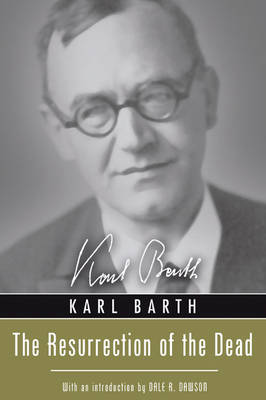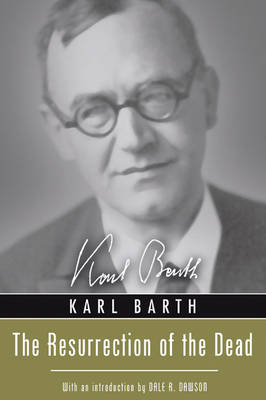
- Afhalen na 1 uur in een winkel met voorraad
- Gratis thuislevering in België vanaf € 30
- Ruim aanbod met 7 miljoen producten
- Afhalen na 1 uur in een winkel met voorraad
- Gratis thuislevering in België vanaf € 30
- Ruim aanbod met 7 miljoen producten
Zoeken
Omschrijving
Karl Barth saw Chapter 15 as the center of 1st Corinthians, arguing that a misunderstanding of the resurrection underlies all the problems in Corinth. In this volume, he develops his view of biblical eschatology, asserting that Chapter 15 is key to understanding the testimony of the New Testament. Barth understood the last things not as an end to history but as an end-history with which any period is faced. ""He only speaks of last things who would speak of the end of all things, of their end understood plainly and fundamentally, of a reality so radically superior to all things that the existence of all things would be utterly and entirely based upon it alone, and thus, in speaking of their end, he would in truth be speaking of nothing else than their beginning."" Page 104
Specificaties
Betrokkenen
- Auteur(s):
- Uitgeverij:
Inhoud
- Aantal bladzijden:
- 236
- Taal:
- Engels
Eigenschappen
- Productcode (EAN):
- 9781592443833
- Verschijningsdatum:
- 7/10/2003
- Uitvoering:
- Paperback
- Formaat:
- Trade paperback (VS)
- Afmetingen:
- 130 mm x 204 mm
- Gewicht:
- 231 g

Alleen bij Standaard Boekhandel
+ 83 punten op je klantenkaart van Standaard Boekhandel
Beoordelingen
We publiceren alleen reviews die voldoen aan de voorwaarden voor reviews. Bekijk onze voorwaarden voor reviews.











